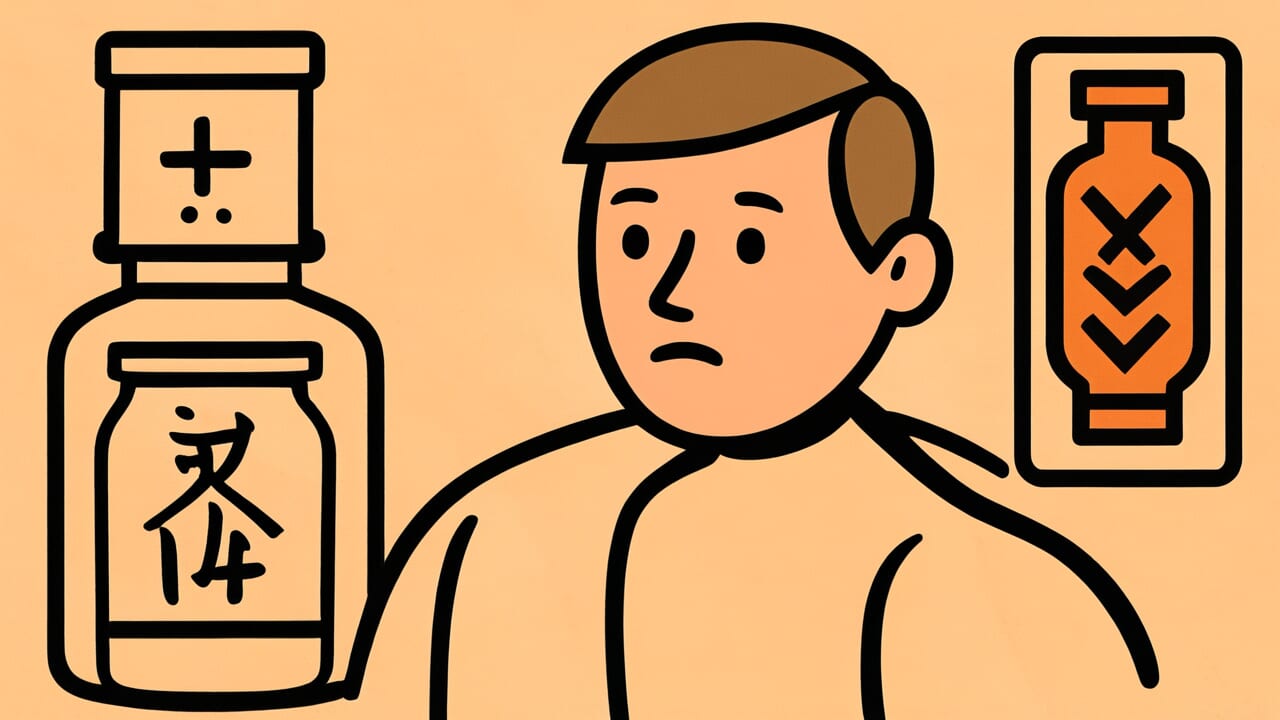How to Read “Humans are vessels of illness”
Ningen wa yamai no utsuwa
Meaning of “Humans are vessels of illness”
“Humans are vessels of illness” means that people are fundamentally prone to getting sick. No matter how careful we are about our health, the human body is fragile and can fall ill at any time.
This proverb is used when reminding people not to take good health for granted. We should receive it with humility and gratitude.
It’s also used to show understanding when someone gets sick. The saying reminds us not to blame them, because illness is an unavoidable part of being human.
Modern medicine has advanced greatly. Many diseases can now be prevented or treated. Yet humans remain susceptible to illness.
In fact, more people today suffer from physical and mental problems due to stress. This proverb still teaches us an important lesson.
We shouldn’t be overconfident about our health. We must take care of our bodies and treat them with kindness.
Origin and Etymology
The exact origin of this proverb is unclear. No specific historical text has been identified as its first source.
However, it clearly reflects traditional Japanese views about the body and illness. These ideas run deep in Japanese culture.
The word “vessel” is key to understanding this saying. It doesn’t just mean a container. It suggests something that naturally receives or accepts what comes to it.
So “vessel of illness” means a being that accepts sickness. It describes something destined to experience disease.
Buddhist philosophy likely influenced this proverb. Buddhism views the human body as a temporary collection of four elements: earth, water, fire, and wind.
These elements are constantly changing and breaking down. The body is seen as unstable and impermanent. This view of impermanence shaped how people understood human fragility.
Before the Edo period, medical care was very limited. People lived constantly alongside disease. There was no preventive medicine or advanced treatment.
Even a simple cold could be life-threatening. When epidemics struck, many people died. Through these harsh experiences, people deeply understood how fragile the body is.
This accumulated wisdom crystallized into the proverb we know today.
Usage Examples
- As I get older, I increasingly realize that humans are vessels of illness
- I used to push myself hard because I was young, but humans are vessels of illness, so I must take care of my body
Universal Wisdom
The universal wisdom in “Humans are vessels of illness” is the importance of acknowledging human fragility. We often think our bodies will do whatever we want them to do.
When we’re young especially, we take health for granted. We push ourselves too hard. But this proverb gently yet firmly asks us a question.
Is your body really that strong?
Recognizing that humans are prone to illness isn’t pessimistic. Rather, knowing our limits helps us live more wisely.
When we understand that perfect health doesn’t exist, we stop worrying so much about minor problems. We stop blaming ourselves when we get sick.
On a deeper level, this proverb teaches compassion for others. If everyone is a vessel of illness, we can’t blame or look down on sick people.
That could be us tomorrow. Our ancestors understood that we need to support each other as beings who share this fragility.
This humility is why the saying has been passed down through generations.
When AI Hears This
Human body temperature stays around 36 to 37 degrees Celsius. This is an act of defiance against the flow of the entire universe.
According to physics, hot things cool down. Ordered things become disordered. Everything moves toward a uniform, scattered state. This is the law of increasing entropy.
The human body should naturally reach the same temperature as its surroundings. Its complex structure should break down. Yet the body desperately uses energy to stop this flow.
What’s interesting is that most diseases are “partial failures of this order-maintenance system.” Diabetes is a breakdown in the mechanism that maintains blood sugar order.
Cancer happens when the order of cell division collapses and cells multiply chaotically. Fever is a disruption of temperature regulation. Disease is entropy invading part of the body.
Furthermore, eating and breathing are ways of importing ordered energy from outside. This delays the body’s descent into disorder.
But physical laws are absolute. No matter how hard we try, entropy eventually wins. Humans are vessels of illness because life is a beautiful battle against universal laws.
It’s a fight where defeat is certain, yet we continue anyway.
Lessons for Today
This proverb teaches modern people to see health not as “normal” but as “something to be grateful for.” When we’re healthy, we don’t think about it.
We only realize its value when we lose it. But if we know that humans are vessels of illness, we can feel grateful for each day we spend in good health.
Modern society treats health as a given. When people get sick, they’re sometimes blamed for poor self-management.
But this proverb teaches that illness is part of human nature. It can happen to anyone. So we shouldn’t blame ourselves too harshly when we get sick.
We should also be understanding toward others who are ill.
At the same time, the proverb suggests the importance of prevention. Because we’re prone to illness, daily self-care matters greatly.
Don’t push yourself too hard. Listen to your body’s voice. Rest when you need to rest.
These simple things may be the wisest way to live. After all, your body is a precious vessel you’ll have for your entire life.



Comments